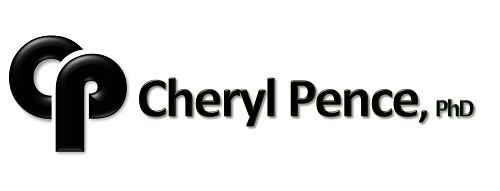
Prioritize the Things You Value Most to Experience a Life You Love
Values are your socially-held principles, goals, or standards, and they offer a foundation for setting career and life goals. Milton Rokeach,1 a pioneer in life values research, proposed two sets of values that are still used today. Other researchers have identified a variety of ways to list or categorize values differently. However, for simplicity’s sake, Rokeach offered an extensive list that is a great starting point for identifying what you find most important in your career and life.
Identify Your Goals and How You Want to Achieve Them
One set of his values was focused on a decision-making aspect; these are related to the goals you want to achieve in your lifetime. The other set was focused on an emotional aspect or the ways you want to achieve those goals such as your behaviors or mindset. These values included:
| Goals True Friendship Mature Love Self-Respect Happiness Inner Harmony Equality Freedom Pleasure Social Recognition Wisdom Salvation Family Security National Security A Sense of Accomplishment A World of Beauty A World at Peace A Comfortable Life An Exciting Life | Ways to Achieve Your Goals Cheerfulness Ambition Love Cleanliness Self-Control Capability Courage Politeness Honesty Imagination Independence Intellect Broad-Mindedness Logic Obedience Helpfulness Responsibility Forgiveness |
Prioritize the Things You Value Most
Prioritizing these values can help you identify what is most important to you. How you prioritize your values can determine the career decisions you make and the way you choose to live your life. Values are said to be one of the biggest predictors of career satisfaction and it is no surprise to me because if I am in a job that is aligned with my top values, I am much happier.
Many times, we find ourselves going along with what others in our family, peer group, or society say is important and we don’t understand why we are not fulfilled. It has happened to me. For example, we may be encouraged to take the most lucrative job offer without regard to all the other factors of the job. Others may even feel that they are helping us choose the right job or accept the right projects at work. However, if they are not aligned with our own values, their “right” choice could be our “wrong” one.
Therefore, being aware of our own value system without the influence of others can be telling about how the career decisions you make are in alignment (or not) with your personal values. It is also important to assess our values as we age. For example, living an adventure-filled exciting life with lots of fame and freedom may be important at one stage in our lives; yet, starting a family, experiencing love, respect, and security may be more prominent at a different stage.
Take Action to Experience a Life You Love
To take action and apply this values process in your career, I recommend the following steps:
- Take some time to prioritize the list of Rokeach’s values. If you want a quicker version,
choose the top six from each set of values and prioritize those. - Determine how these values have been integrated into your career or life so far. For example,
- Are you making decisions based on the values most important to you in your life?
- Did your last career decision align with your values?
- If you were going to ensure your top values were met, would you have made the same decision?
- If money was not high on your list, but family or flexibility was, could you have negotiated for benefits
a little differently and asked for more time off or a more flexible schedule without asking for a higher salary?
- Identify ways that you can make adjustments now to ensure your career decisions are more aligned with your personal values going forward. For example,
- Are there ways you can adjust some areas of your career or life to align things more with your top values?
- Are there projects at work that you can take on or let go to be more in alignment with your values?
Because our decisions and values impact all areas of our lives, I encourage you to go through these steps focusing on other areas of your life as well. For example, does your weekend time spent training for an upcoming marathon or participating in a club activity sync with your top values or does it take time away from areas that are more important to you?
Now, let’s go even further. Ask yourself if you only had one year to live, would your priorities change? Would your values still be in the same order or would they shift? My experience in counseling people at the end of life has shown that people regretted not doing the things most important to them when they had the chance. They let others influence their decisions and missed the opportunity to pursue the things they valued most. So, if you had limited time, where would you focus your time and energy? What is the thing you value the most, the one thing you cannot live without?
Helping you clarify what is most significant in your life now can help remove the distracting career and life activities that others push you to pursue and illuminate the careers that would be most aligned with your internal goals.
By prioritizing your values and making your career and life decisions based on those, you will have a better chance of experiencing a career and life you love.
- What did you discover about yourself and how you prioritized your values?
- How was it helpful in identifying the values most important to you?
- How are you taking action today to be more in alignment with your values going forward?
Work Values
Want to look deeper at your work values? Check out these values assessments based on the Work Values Model of Dawis & Lofquist (1984).
- MyPlan.com Values Assessment (free 20-question self-assessment)
- O*NET Work Importance Profiler (free 20-question computerized values self-assessment)
- O*NET Work Importance Locator (free 20-card values sort on paper with manual scoring)
- O*NET Work values search for occupations
If you complete one of the assessments above, consider if your values are an accurate portrayal of your priorities. Why or why not? A key to remember is that these assessments do not tell you what to do, they are just a starting point for discussion or narrowing down your options!
1 Rokeach, M. (1973). The Nature of Human Values. New York: Free Press.
